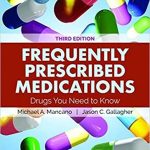
Mental health disorders affect millions of people worldwide, causing significant distress and impairing daily functioning. While therapy and psychosocial interventions are crucial in managing these conditions, prescription medications also play a vital role in the treatment process. This article examines the different types of prescription medications commonly prescribed for mental health disorders and how they work.
Antidepressants
Antidepressants are commonly prescribed to treat depression, anxiety disorders, and certain other mental health conditions. These medications work by balancing chemicals in the brain called neurotransmitters, specifically serotonin, norepinephrine, and dopamine. Common classes of antidepressants include selective serotonin reuptake inhibitors (SSRIs), serotonin-norepinephrine reuptake inhibitors (SNRIs), and tricyclic antidepressants (TCAs).
Commonly prescribed SSRIs include fluoxetine (Prozac), sertraline (Zoloft), and escitalopram (Lexapro). These drugs selectively increase serotonin levels, helping to improve mood and reduce anxiety symptoms. Popular SNRIs include venlafaxine (Effexor), duloxetine (Cymbalta), and desvenlafaxine (Pristiq), which not only increase serotonin but also norepinephrine levels. TCAs like amitriptyline (Elavil) and imipramine (Tofranil) work by blocking the reuptake of norepinephrine and serotonin, resulting in increased mood stabilization.
Antipsychotics
Antipsychotic medications are primarily used to manage psychotic disorders such as schizophrenia and bipolar disorder. These medications target neurotransmitters such as dopamine and serotonin to alleviate hallucinations, delusions, and other symptoms associated with psychosis. There are two main categories of antipsychotics: typical and atypical.
Typical antipsychotics, such as haloperidol (Haldol) and chlorpromazine (Thorazine), primarily target dopamine receptors and are generally used to manage acute symptoms of psychosis. Atypical antipsychotics, including risperidone (Risperdal), olanzapine (Zyprexa), and quetiapine (Seroquel), target both dopamine and serotonin receptors and are more commonly prescribed due to their lesser side effect profiles.
Mood Stabilizers
Mood stabilizers are prescribed to individuals with bipolar disorder to help regulate mood swings. These medications are effective in reducing manic and depressive episodes and promoting mood stability. The most commonly prescribed mood stabilizer is lithium, which works by modulating neurotransmitters in the brain. Another widely used mood stabilizer is valproic acid (Depakote), which also has anticonvulsant properties and is effective in managing seizures.
Anxiolytics
Anxiolytic medications, also known as anti-anxiety medications, are prescribed to individuals with anxiety disorders, such as generalized anxiety disorder (GAD), panic disorder, and social anxiety disorder. These medications help reduce excessive worry, fear, and physical symptoms associated with anxiety. Benzodiazepines, such as lorazepam (Ativan) and alprazolam (Xanax), are commonly prescribed anxiolytics due to their sedative and calming effects. However, they can be habit-forming and are generally recommended for short-term use.
Another class of anxiolytics are selective serotonin reuptake inhibitors (SSRIs), which we have already discussed in the antidepressant section. These medications, like sertraline (Zoloft) and escitalopram (Lexapro), are effective in treating anxiety disorders in addition to depression.
Stimulants
Stimulant medications are primarily prescribed to individuals diagnosed with attention deficit hyperactivity disorder (ADHD). These medications, such as methylphenidate (Ritalin) and amphetamine (Adderall), work by increasing levels of dopamine and norepinephrine in the brain, improving attention, focus, and impulse control. Stimulants are usually short-acting and are taken once or multiple times a day, depending on the individual’s needs.
Conclusion
Prescription medications have revolutionized the treatment of mental health disorders, providing individuals with effective options to manage their symptoms and improve their quality of life. However, it is essential to remember that medication should always be prescribed and monitored by a qualified healthcare professional. It is also crucial to combine medication with therapy and other psychosocial interventions for a comprehensive and holistic approach to mental health treatment. If you or someone you know is struggling with a mental health disorder, consult a healthcare professional to explore the most suitable treatment options available.








